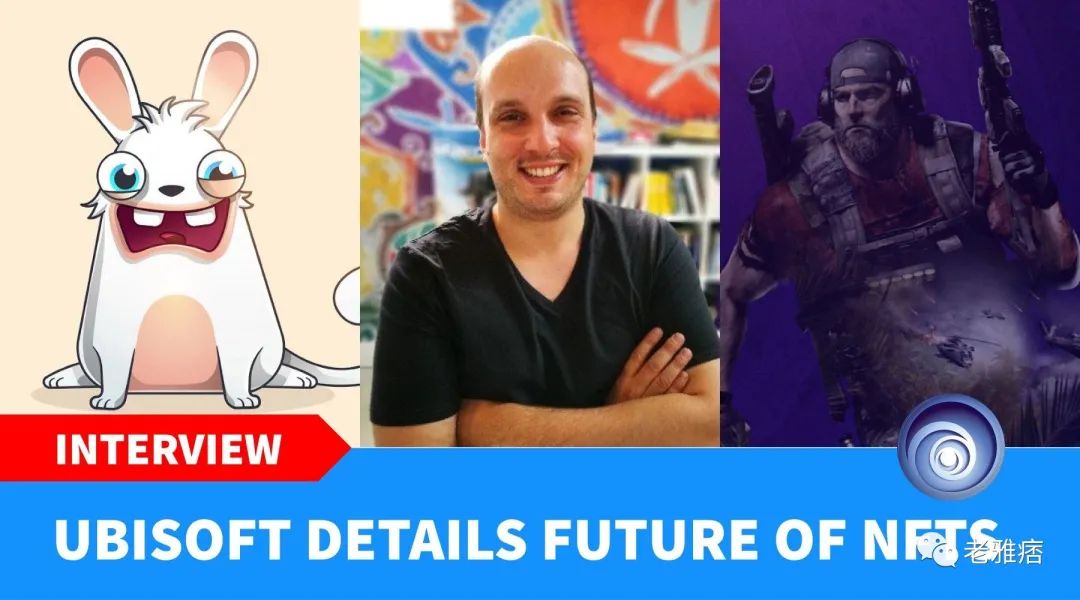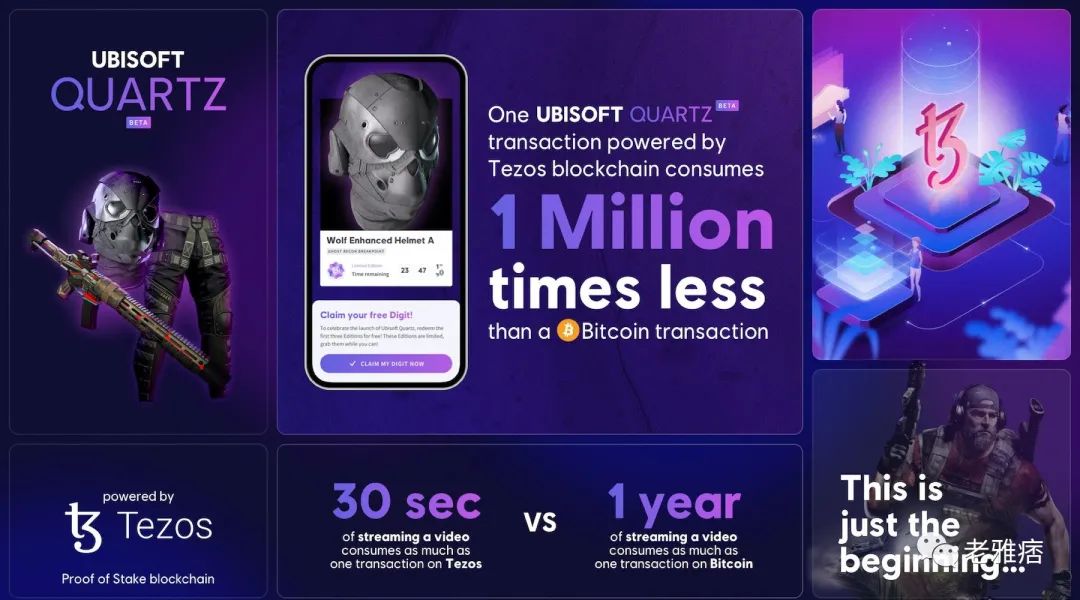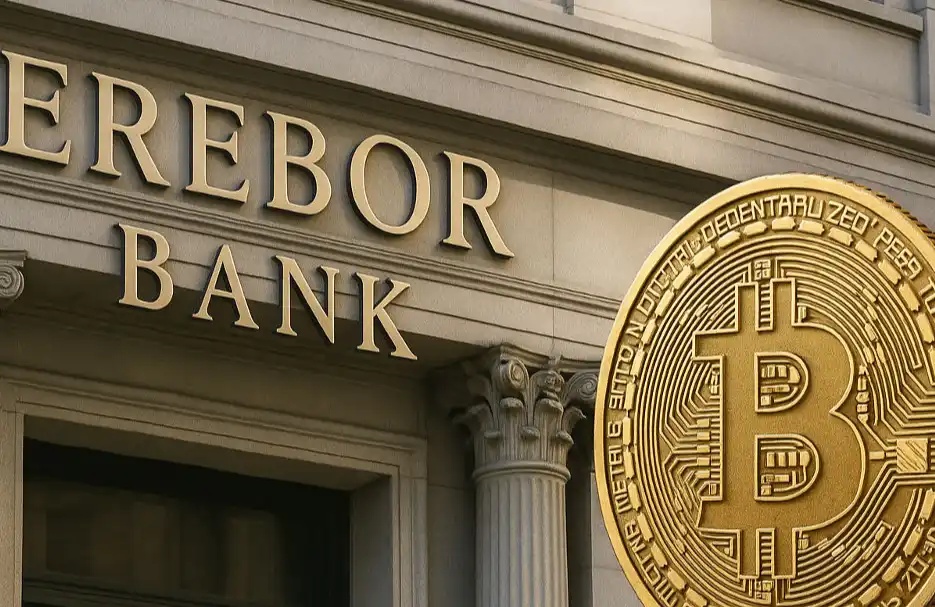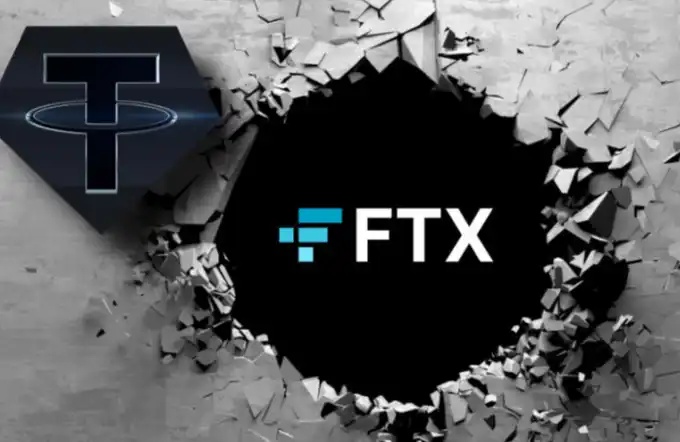Talk to Ubisoft VP of Strategic Innovation Lab: Why are we still going into NFT when players are against it
Responds to angry NFT Digits and Quartz Reaction: Interview
Source: Finde
Wechat official account:Old yuppie
We spoke with Nicolas Pouard, vp of Ubisoft's Strategic Innovation Lab, about the release of Ubisoft Quartz and Digits NFT.
On December 7, 2021, Ubisoft became the first major game developer to publicly enter the NFT space. Ubisoft's Digits and Quartz platforms as NFT didn't roll out well. The feedback was very negative, even aggressive. Big names in the gaming press are also lukewarm in their analysis. Either way, it's a landmark moment in gaming.
I can understand why players might be wary. But I personally don't share that anger. In fact, I'm excited about the roll-out of Quartz and Digits, albeit with an asterisk.
Having worked in games media for over 20 years, I value experience above all else. I play for fun. I'm not interested in investing or making money from games. But OVER the past four years, I've also been paying close attention to blockchain and NFT games, and I can see that the technology has the potential to offer players greater freedom. If products like Ubisoft Quartz and Digits (and you can count on more to come) are handled well, players can benefit a lot.
It's not just a product, it's the gaming ecosystem we've built through games and communities, and if done right and the promise delivered, it's a future with positive potential.
Will Ubisoft do well? Or will Quartz and Digits be the children of the demons that devour our beloved interests?
I shared my concerns with Nicolas Pouard, vp of Ubisoft's Strategic Innovation Lab and head of Quartz and Digits, to see how he would respond to the backlash his product is generating. Speaking with the help of Didier Genevois, ubisoft's blockchain technology director.
Note: This interview was conducted in English, the second language of Pouard and Geneva.
Player feedback for the ubisoft Quartz and Digits releases was generally negative. What does this feedback tell you about the prospects for success of mainstream NFT?
Nicolas Pouard: This is the reaction we were expecting. We know this is not an easy concept to understand. But Quartz is only the first step towards greater things. This makes it easier for our players to understand. That's the way we think about it, and that's why we keep trying. We will continue to release features and services around this initiative. Our belief is that the puzzles will be revealed and understood bit by bit by our players. We want them to better understand the value we offer them.
You talked in your talk about how to improve your relationship with your players. If that's your goal at Quartz, it can be frustrating to see the feedback you receive.
NP: I think it's part of the process. It's a reaction we're used to. I think it's great because it shows how engaged players are and how passionate they are about their hobbies and games. Seeing that, I think it's reassuring in a way. It shows that our players love what we do and ubisoft's ability to deliver great games. So that's good.
Still, obviously we're a little frustrated. But I think overall, it's good, it's something we can really understand. We firmly believe that what we're doing [with Quartz and Digits] is moving in the right direction. So we will continue to consolidate. Obviously, as we go forward, it's about listening to what our fans are telling us and how they're telling us, so we can adjust what we're doing and where we're going as well. So this is the next step. To make sure that what we're doing is more meaningful to our players.
Well, let's talk about what it means. What do you think is the biggest positive that gamers are missing that Digits and NFT can offer them?
NP: I don't think players understand what the digital secondary market can do for them. For now, because of the current state and context of NFT, players do see it first as destroying the planet and second as a speculative tool. But we (Ubisoft) saw the end of the game first. The end game is about giving players the opportunity to resell their items when they run out of items or after playing the game.
So, it's really good for them. But they don't get it yet.
It's also part of a paradigm shift. Moving from one economy to another is not easy. There are a lot of habits you need to change, a lot of ingrained mindsets you need to change. It takes time. We know that.

Do you think it would be better to launch Quartz without mentioning NFT or blockchain? What if you just launched a new platform and it offers something new to gamers without showing them the underlying mechanics?
NP: We actually tried it to some extent, which is why we named them Digits. We considered not talking about technology, but we know our players. They'll know that Digits is NFT. So, we don't think it's very wise to try to hide it. Our principle is to create a safe place and environment with Quartz. So we need to be transparent about what we are doing.
Didier Genevois: If I can make a comment on that. As Nicholas said, we knew that if we didn't mention technology, players would notice. When it comes to blockchain, the first thing gamers care about is its impact on the environment and the energy it consumes. So the key for us is to be able to show that we are aware of this concern and that we are actively choosing to use Tezos.
This [communication] is consistent with our role as a company. Our research is very participatory on environmental and related issues. For us, we were able to pre-empt the discussion and let players know we were taking the right steps to protect the environment.
I'm afraid it's not just the environment. A lot of the feedback I've read suggests that players think or worry that NFT is the new microtransaction or the new loot box; Digits will make Ubisoft's games more expensive. Are they right or wrong?
NP: Well, first of all the players are always right. Because they are our players and we love them. So, they're always right. But your observation is correct. The first point I want to make is that Digits is completely optional. That's what we do outside of the game economy. So, you can use Quartz, or you can choose not to use it. It's really a matter of personal choice.
At no time will we force players to use Quartz and Digits. We just tell them that there is a new system that can provide them with more value than the current system. That's the first point.
And then there's the way we build the platform, about the eligibility criteria. We made it a little hard to get into. You have to buy the game. You must play for at least two hours. So it's a little bit complicated for pure speculators to go there and invest and inflate the market. It's not that complicated either, but there are plenty of other options for speculators to come in and mess with. We think Quartz is primarily for our players, and our preliminary numbers confirm that expectation. That's what we see when we look at the data.
Remember, this is still an experiment. We will adjust the number of releases we are going to release so that there won't be too much inflation. Our main concern is to make sure that even in secondary cities
On the field, the price of the game is not too high, so that ordinary players can also play.

So, to clarify, can skin NFT released in Ghost Recon: BreakPoint also be purchased through the game economy -- or even acquired in-game -- and then only acquired or registered through Quartz to become unique NFT?
NP: No, so these skins are unique to Quartz. If you don't go through Quartz, you can't get them in the game.
An important belief associated with blockchain is decentralization. Shift power from big corporations to consumers. From the outside, I immediately question the value of decentralization for a company like Ubisoft. How does decentralization benefit Ubisoft?
NP: So the question is really about player engagement and how to share the ecosystem with them. When you look at just one company, Ubisoft, I think it's over $3 billion. But the entire ecosystem [of Ubisoft products] is worth over $15 billion. So the ecosystem is much more than just one company. This ecosystem consists not only of companies, but also of players and the various roles they play within the ecosystem.
So for a centralized company like Ubisoft, the benefit of decentralization is to open the doors to our games and make them bigger by sharing [shares] with the players. Build new experiences on each game to date. It's a new way of looking at games.
I don't want to go into detail, but today, having a huge ecosystem is probably more fun than having just one game. I'm sorry, because I know it's hard to understand right now, because the idea doesn't really exist yet. But we see that the ecosystem of a game can be much, much bigger than today's games in terms of creating value for everyone.
The most cynical feedback I've read from players points out that this is all a ploy by Ubisoft to make more money. But do you think it's about creating a deeper player engagement experience?
NP: Yes. The monetizing game model allows players to make money by adding value to the entire ecosystem. So, it's not just about Ubisoft.
Given that Ubisoft is trying to lead this nascent space, when you saw what happened to the Stalker 2 team -- they announced the NFT integration, then dropped it after the backlash -- how did that make you feel? What was your reaction?
NP: Unfortunately, there is still some resistance based on misunderstanding. But I'm not sure we can compare Stalker 2 to Quartz's goals. I would say that this is a different use case for the player.
I know it's only been a few weeks since Quartz launched, but what valuable lessons have you learned from the Digits launch so far?
DG: What we've learned is that the barriers we put in place for eligibility standards are working. Of the 2,500 tokens ordered in the first two weeks of the game, the vast majority came from Ghost Recon: Break Point players. They didn't start when we launched Quartz on December 7th. They've been playing games for a long time before that. That's good to see, because for us, that's the biggest risk. The market can be preempted by speculators. This is definitely not what we want to see.
NP: Maybe from a technical point of view, we're happy that everything went our way. It wasn't easy because we built on top of Tezos, which isn't the obvious choice when you're building NFT. But we want to work on this environmentally friendly option. We are very pleased with that. Also, I think it's very easy to use Quartz from a user experience perspective.
Do you think players will have their own games in the future? Are these games NFT?
NP: These are some of the use cases we can explore, but not the focus of today.
Do you think that most (if not all) of ubisoft's future games will be combined with Quartz and Digits in some way?
NP: Actually, we're already a very fragmented company. We asked the team on each project to decide whether they wanted to own Digits or use the Quartz platform itself. So, it's open.
But obviously, the Tom Clancy fight will be the first point of contact, right?
NP: (Laughs) Probably.
Starting with the game, in your presentation on Quartz and Digits, you mentioned the possible acquisition of decentralized autonomous organizations (DAOs) in the future. What do you mean by that? Did I hear you wrong?
NP :(I mean) the future of user acquisition. When you talk to DAO members like Yield Guild Games, they really see themselves as the new acquisition tool in Games. Because if you have a great game experience, those guilds are going to be in your game and they're going to be driving your ecosystem, and the end result is you need to be integrated into the economy and the community. So, it's not just the marketing dollars you spend to acquire new players, it's how you structure the game in a way that will appeal to guilds.
Engaging guilds are very specific about how much money the game can make. Is this something you're interested in? If so, through a new IP, or would you consider applying P2E to an existing IP?
NP: Yes, we are interested in game revenue. For us, it's the same logic as what we do today. So, we try to look at Ubisoft games as a place that provides the most value to your experience. This means that there are different kinds of value as you play the game.
And of course it's fun. The pleasure you get from playing games. In fact, you can learn. For example, in Assassin's Creed, you can learn history, and we experiment with old games where you learn new soft skills. So, games can be a lot of things, a lot of things for the player. Adding realistic value rewards on top of all the value the game already provides might be the next addition.
So Quartz is just a continuation of what we're already doing, but I would say it has to be handled well. That's why it doesn't make sense to take an existing game with an existing economy and try to transfer it to the game economy. It really needs to start from scratch. Because it's a very different way of thinking about game economics and monetization.
Have you been talking about cross-using Ubisoft characters with other NFT games? Like the Axie from Axie Infinity that looks like Rabbid? Are you looking into something similar and trying to promote the Ubisoft brand in the existing NFT space?
DG: In the past we did some experiments with Cryptokitties and Rabbid. So there must be a path to cross-brand experimentation like this. For now, nothing will be exported. But, yes, internally, it's possible at some point, because that's what the technology ultimately provides.
The original link
Welcome to join the official BlockBeats community:
Telegram Subscription Group: https://t.me/theblockbeats
Telegram Discussion Group: https://t.me/BlockBeats_App
Official Twitter Account: https://twitter.com/BlockBeatsAsia
 Forum
Forum OPRR
OPRR Finance
Finance
 Specials
Specials
 On-chain Eco
On-chain Eco
 Entry
Entry
 Podcasts
Podcasts
 Activities
Activities







